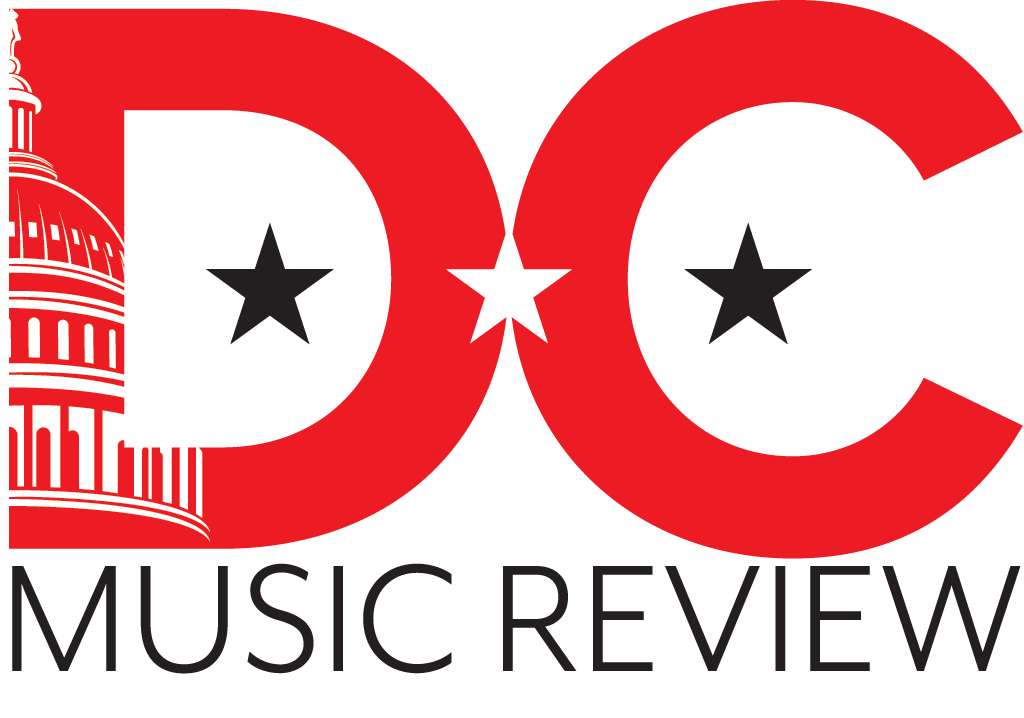I was introduced to Matt SwampGuinee after a show at Black Cat by a mutual music friend who said, "you HAVE to listen to what this guy is working on." He was so right.
Matt and I chatted for a bit before he handed me a copy of the CD "Born Again" by his group Crank LuKongo. On my ride home through the city, I gave it a listen.
And damn, this album hit me hard in the best of ways, it's one of those albums I keep in my constant rotation. It is Go-Go heart with consciousness raising lyrics. Infused with so much DC soul, its message reaches deep into this city's roots, yet its themes reach far beyond this city. Although created in 2018, it is a very fitting soundtrack what's going on in the entire country right now.
I had a chance to catch up with Matt, finally, after over a year since our introduction to find out more about this phenomenal album and what his music collective Crank LuKongo is all about.
Hello Matt, it's so great to finally connect with you! I know you have a ton of projects. Tell me more about what bands you play in and your musical projects of late.
Thanks so much, Nina, so happy to connect with you, too!
As a freelance percussionist and drummer, I currently play, perform and record with a number of groups and artists in a wide variety of music styles. They are Bambu Station, The Legendary Wailers featuring Junior Marvin, The Archives, Thievery Corporation, Charles Road, The Harold Little Quintet, Lazy K, and my very own production, Crank LuKongo.
Clearly this is what feeds your soul.
Absolutely.
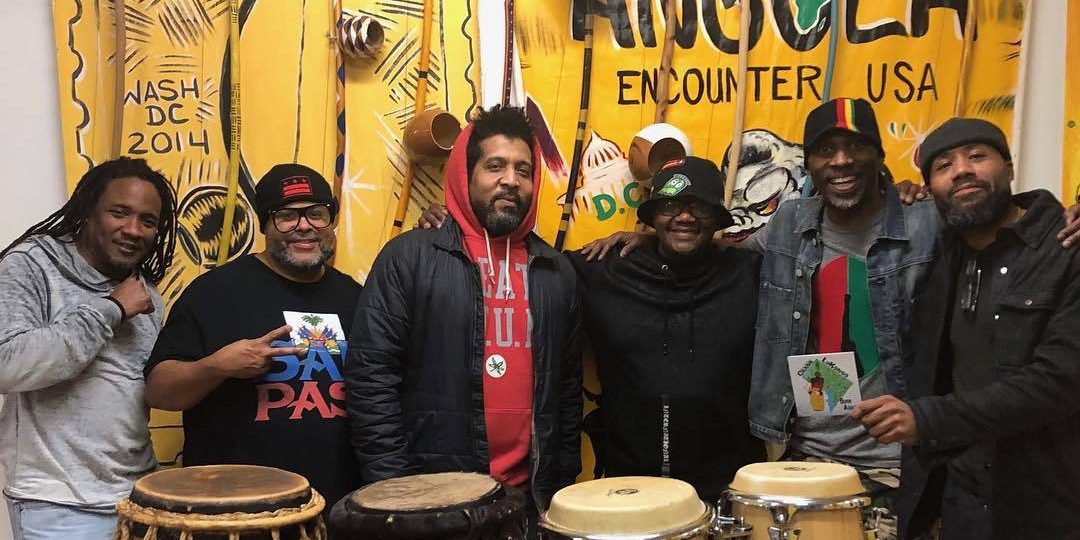
I'm most familiar with your work Crank LuKongo. Start there and tell me more about this super group.
Crank Lukongo is a musical movement made up of a variety of songwriters and musicians with each expressing compelling stories, assuming our roles and commitment as contemporary urban griots.
Our self termed genre, “Afro Go-Go Roots Music” is defined as a Go-Go hybrid — a branch or form of Go-Go music — a rhythmic foundation of DC Go-Go with a diverse melodic root from many other styles of music including Jazz, Afro-Cuban, Salsa, Blues, Reggae, Hip-hop, Folk, Rock, Afrobeat, Worldbeat, R&B/Soul and Funk.
The lyrical subject matter gives it some distinction as Go-Go music is mostly known for more party-type music. There are a few other Go-Go hybrid groups that have emerged from the shadows of Go-Go proper and it’s other sub-genres.
I want to hear more about those other hybrid groups but first, tell me more about your most recent album, "Born Again."
“Born Again” was released in 2018. It has a strong Go-Go rhythmic foundation with heavy World-Music/Worldbeat elements. Each song minus one are all original compositions from myself and other members of Crank LuKongo.
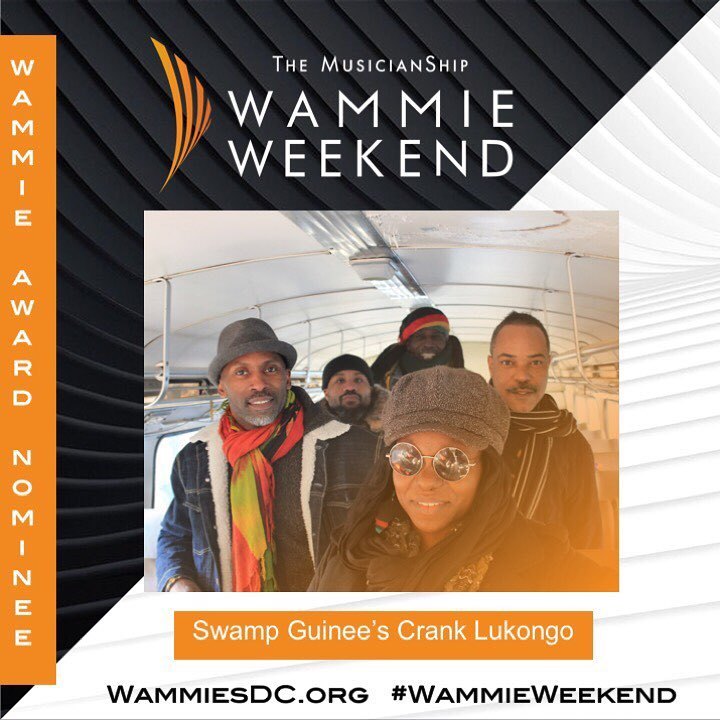
I've listened to this album and was incredibly moved by the music and emotion in it. There are a lot of strong messages in the album, talk to me about that.
Thank you so much. Each song contains a narrative promoting cultural awareness, asserting social activism, highlighting and honoring the historical anthropology of the Native and Indigenous people from the Washington, DC region, and the love of self and humanity.
That's one thing I really love about "Born Again." It feels SO quintessential DC, you can hear the city's voice in this album. And it's so relevant for right now.
The whole concept came from my years of touring the globe with Virgin Island Roots Reggae group, Bambu Station. Being in a group of majority Virgin Islanders and other parts of the Caribbean, I was constantly asked by fans about my place of birth once they heard me speak. They always seemed to be in shock when I told them that I was born in Washington, DC. People typically have no idea that people of color are native to the region they know as the nation’s capital of the United States as well as having our own distinct culture, mannerisms, vernacular, music and dance, etcetera.
Because the people were so interested and intrigued, I found myself in a position of sharing. As a music educator and aspiring ethnomusicologist, it was very easy for me to share our unique indigenous form of music called Go-Go and it’s history.
Shortly after, I envisioned a concept to create an all original musical voice using Go-Go that would and could share as much about our culture, it’s history and current issues to the global community all while instilling pride within our own communities back home in the DC area.
It's a phenomenal album and there is so much heart in it. What was the reaction when you released this in 2018 and where did you go from there?
So many things to say. First and foremost, gratitude. The outpouring of appreciation and validation from many on social media and radio was so appreciated. I am so grateful for that and the consistency in rotation of airplay on local and other regional radio programs. The fans are the best.
We were able to shoot and release two official music videos, “After the Revolution” which was shot on location at historic Fort Stevens Civil War Battleground and “Ghosts of Anacostia” which was shot in entirety on location in historic Anacostia. (Cool side note — we served as a contributor with the name changing of the Washington Football Team’s former name. This can be noted through reference in “Ghosts of Anacostia.”)
And we played some incredible shows. First our sold out Crank LuKongo album release party at The Eaton Hotel — we were the first Go-Go group to perform there — featuring the legendary Junior Marvin of Bob Marley & The Wailers (guitar), and the legendary Juju House of Experience Unlimited (EU) and Chuck Brown (drums). This was the first and only time the two legends performed together.
We had some other great shows. We headlined the first annual Down In The Reeds Music & Healing Festival at Walter Reed Park, shared the stage with the legendary Boukman Eksperyans (Haitian Roots Music), performed at the prestigious Carnegie Institute for Science for the Institute for Policy Studies and at the Letelier-Moffitt Human Rights Awards which was amazing.
Finally, we were nominated for two WAMMIE Awards in 2019 for Best Go-Go Album and Best Go-Go Group/Artists, which was a huge honor.
That is wonderful, and man, does it make me miss the pre-pandemic days and live shows.
Tell me about the myriad of people you collaborate with, it sounds like you have a community of artists you like to work with.
As a freelance musician, I have the benefit of working with and collaborating with some amazing musicians that I envisioned them being a part of the Crank LuKongo collective. This made the formation of the concept much easier because I knew that I wanted each song to be distinct while allowing each musician or artist bring their spirit and character to the production. I wanted a family vibe of people with good energy and on board with making this music positive and for the people. It took almost five years to complete the album but we executed very professionally. It was my first project wearing a producer’s hat and having the personnel that we had, I was very satisfied with the results.
And who are the players in the group?
Although the core of Crank LuKongo is not as large as the actual number of contributors on the album, all people involved are connected as a family. Some of the most noticeable contributors are Junior Marvin (lead guitarist for Bob Marley & the Wailers), Georges Kuakou (keyboardist and producer for Alpha Blondy), Mighty Moe Hagans (percussionist for EU, Chuck Brown Band), Ron Winters (lead guitarist for Branch Manager), Nala Shabam (keyboardist/pianist for Jackie McClean, New Soil Ship), Tuff Lion (lead guitarist and vocalist for Bambu Station, Lion Charge), Frankie Addison (saxophonist for The Addison Bros Quintet, The Blues Alley Big Band and more), Lazy K Lofton (guitarist and vocalist for Lazy K, Bassehead and more), Dave Blackwell (vocalist, guitarist and bassist for Pure Light Seed, Charles Road, Muscles and Jackbone and more).
Other contributors are Warren Pedersen (bass and engineer), Brian Clark (percussion), Andre LaSalle (guitar), Philippe LeMaire (keyboards), I’la Vibez (vocals), Head Roc (vocals), Tom Workman (vocals), Sebi Medina-Tayac (vocals), Izabella Sparrow (backing vocals), Samadhi Miller (backing vocals), Kelvin Montgomery (trombone), and Donald Tillery (trumpet).
You mentioned other hybrid Go-Go groups, who else is out there doing this kind of thing?
There are so many great hybrid bands out there, top of mind are:
- Black Alley - Hood Rock (a hybrid of Go-Go with rock and hip-hop)
- Harold Little - Pocket Jazz (a hybrid of Go-Go and straight ahead jazz)
- Ras Lidj & The Deep Band - Regg’go (a hybrid of Go-Go and roots and dancehall reggae)
- The League Music Group - Go-Go Nu-Wave (a hybrid of Go-Go with rock, r&b, and gospel)
It's worth mentioning that all of these aforementioned groups have been diligent in using their platforms to address social change and protest in their music even before the recent wave of social protests and uprisings.
I will definitely check them out, no doubt they will make me feel proud to be part of this amazing city.
So tell me more about you, your background, how you got into music.
I sang in church and in the glee club all throughout my youth. When I was twelve, my mom bought me a guitar and my brother a drum set for Christmas and we formed a Go-Go band called Eternal Funk. We would play local neighborhood concerts on the streets and alleys of the Trinidad neighborhood in N.E.
During my early high school days at the Duke Ellington School of Arts, I absorbed so much quality music even as a theatre student, that I just wanted to hang with the musicians. It was then that I truly discovered my love for percussion because of what I heard coming from boomboxes everywhere. We used to start revolutions in our classrooms by beating on our desks with heavy Go-Go rhythms. I finally saw the power in rhythm and music and have been committed to it ever since.
Being a young adult and a new resident of the Adams Morgan/Columbia Heights area, I took advantage of the weekly African drum circles at Malcom X Park aka Meridian Hill Park. That whole experience really set me on my path as an aspiring drummer.
As a self taught percussionist and drummer, I only saw it fitting to reach out to some of DC’s well known master drummers in order to solidify my skill set. I was led to master drummer Abasi Johnson who later became my teacher and mentor. Both Abasi and the late Baba Ngoma who actually started the African drum circle in the park over fifty years ago, would accept me as they’re student and teach me all that I wanted and needed to learn about the wide world of African drumming and it’s extensions. The rest is history.
I love that. You had mentors who have deep roots in the pulse of this city. Tell me about some other people who have had an influence on your music.
I would be remiss if I didn’t give credit to my late great uncle Charles Miller for sitting us down at the piano as young children in Rock Hill, South Carolina and teaching us the melody and the words to a spiritual called, “We come this far by faith.”
Other influences include Curtis Mayfield, Stevie Wonder, Earth, Wind & Fire, Mandrill, New Birth, The Neville Brothers, Bob Marley & the Wailers, Gilberto Gil, Fela Kuti, Celia Cruz & the Fania All-Stars, Public Enemy, A Tribe Called Quest, Peter Tosh, Bob Dylan, Jimi Hendrix, Santana, Ike & Tina Turner, Bad Brains, Marvin Gaye, Nina Simone, Angelique Kidjo, The Average White Band, Carlos Nkai and many more.
That right there (smiles). What about locally, can you name three local DMV artists that you are listening to these days or that you admire.
Other than those Go-Go hybrid groups that I mentioned before, I really like the music of Unswayed, Desi Hyson, and The Archives Reggae Band. I could go on but you only asked me to name three (laughs).
Tell me about how the pandemic has affected your music and your life. What are you doing to take care of yourself these days?
As a freelance musician, the pandemic has hindered me from earning wages for performances and recordings that I’ve been accustomed to for many years. Crank LuKongo was scheduled to perform at three major festivals this past spring and summer that were all cancelled: The Anacostia River Festival in April, The New World Passover Festival in Damona, Israel in May, and the RootzFest in Ocean City in June.
Because everything got cancelled and shut down, that limited us from any progressive movements that we were looking forward to as a fairly new group. We have since been using this time wisely by creating and recording new music for upcoming projects. I have been taking advantage of the extra time doing things that I love like hiking, camping, working out and spending more time with family and closest friends. Being mindful of complete health and wellness is how we have been able to stay safe and maintain our focus throughout it all.
Absolutely. And how do you think the music scene will change once things get back to a “new normal”?
I’m not really sure how the music scene will change or shift once the smoke clears but I do know that there will definitely need to be some policies in place to secure the health and safety of the artists and the patrons. I have seen venues that have already opened back up for business although I’m not really sure of their policy. I’m going to play it safe until I feel comfortable and assured to go back out. I recently did a virtual performance with The Harold Little Quintet at the Public Playhouse Theatre. It was a filmed performance for the PG County Department of Parks and Recreation with no audience. I loved it. It kind of felt like being in the NBA bubble.
I'm glad you're playing it safe these days. Last question, I always love to know what books move musicians. Can you name three that I should add to my reading list?
Sure thing. Lakota Woman by Mary Brave Bird, The Drummer’s Path by Sule Greg Wilson, Chocolate City: A History of Race and Democracy in the Nation’s Capital by Chris Myers and George Derek Musgrove.
Awesome. Thank you so much, Matt, for taking the time to connect with me! This has been such an eye-opening interview for me and I'm so glad to get to know you and your music better.
Thank YOU for taking the time to connect with me, and for listening to and supporting the music and the city.
Additional Resources
Additional Resources
Additional
Resources
To learn more about Matt and Crank LuKongo, check out all of his digital platforms (where the full albums is available):
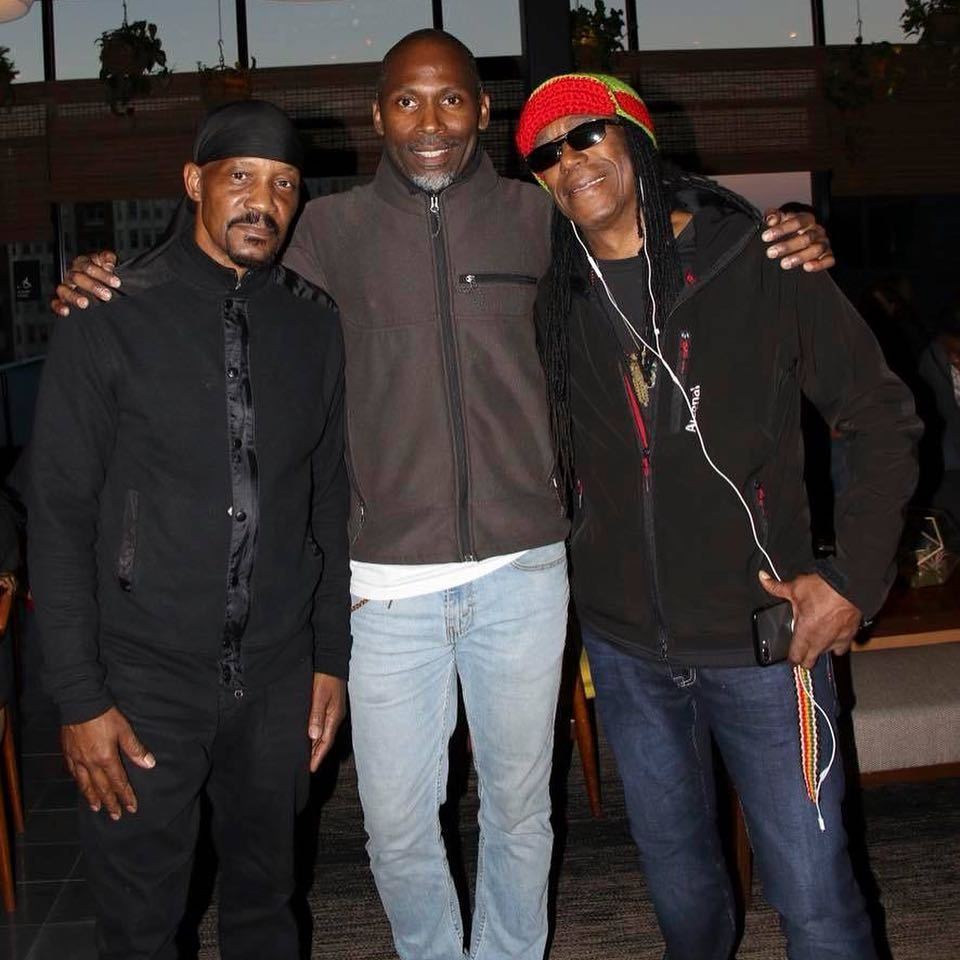
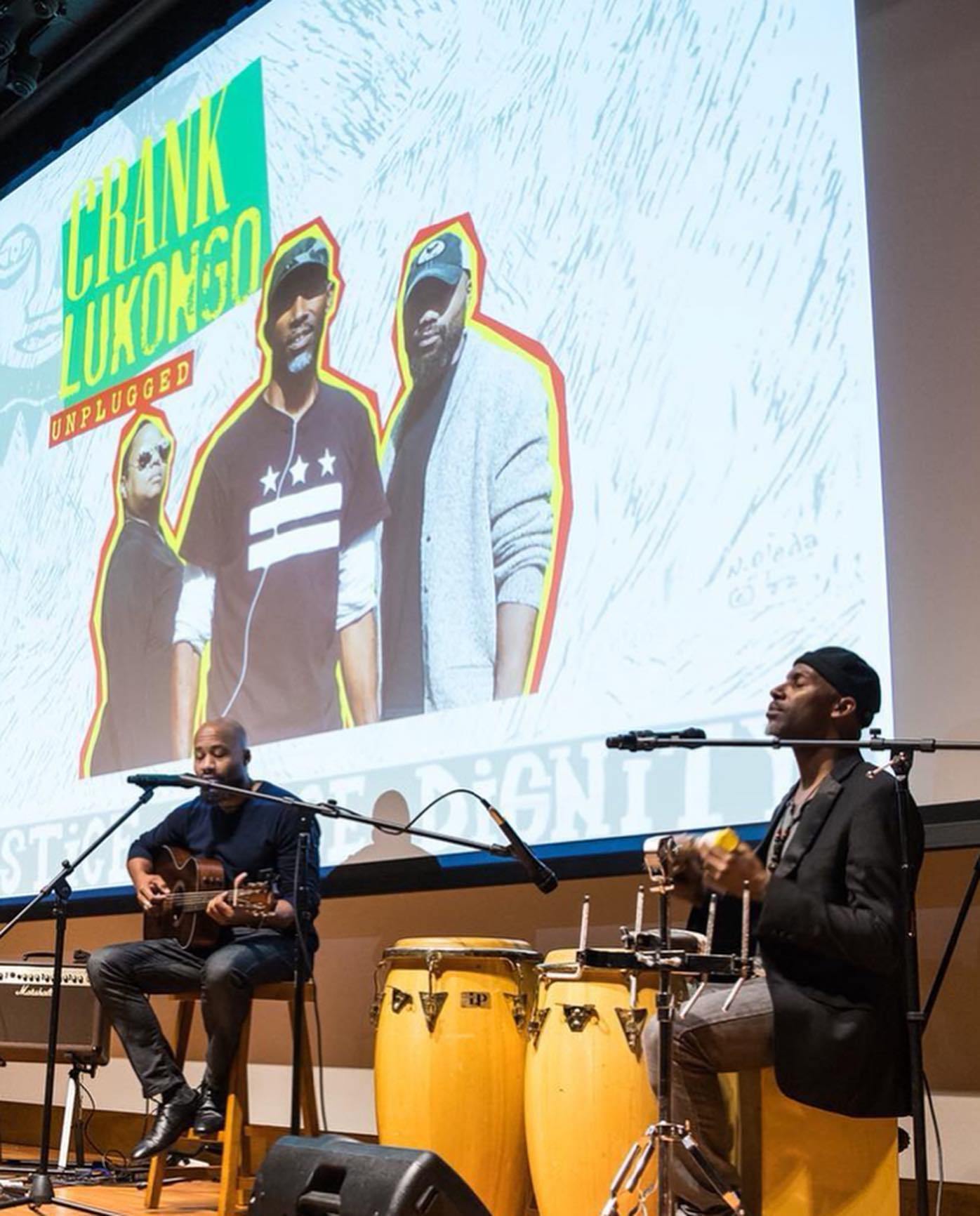
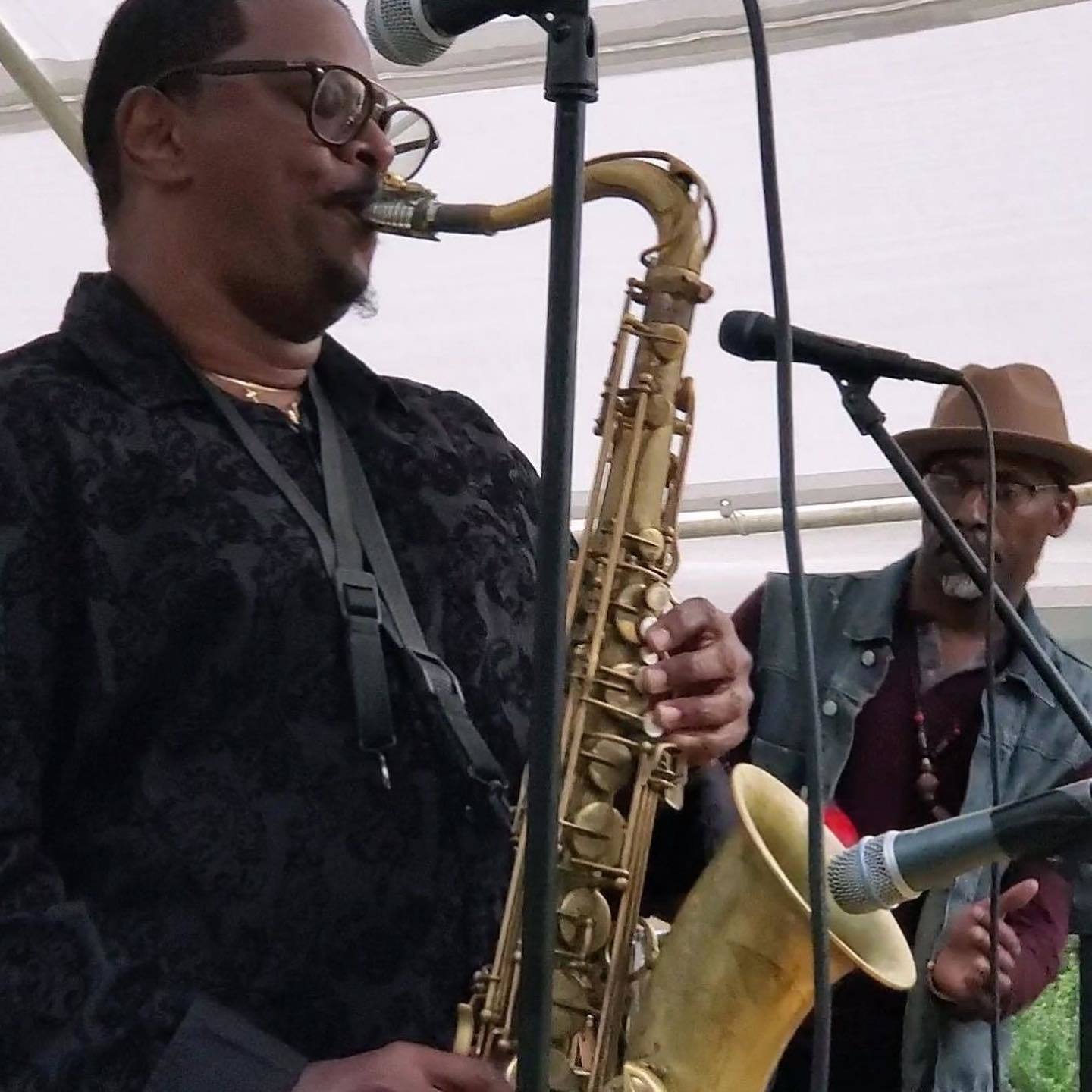
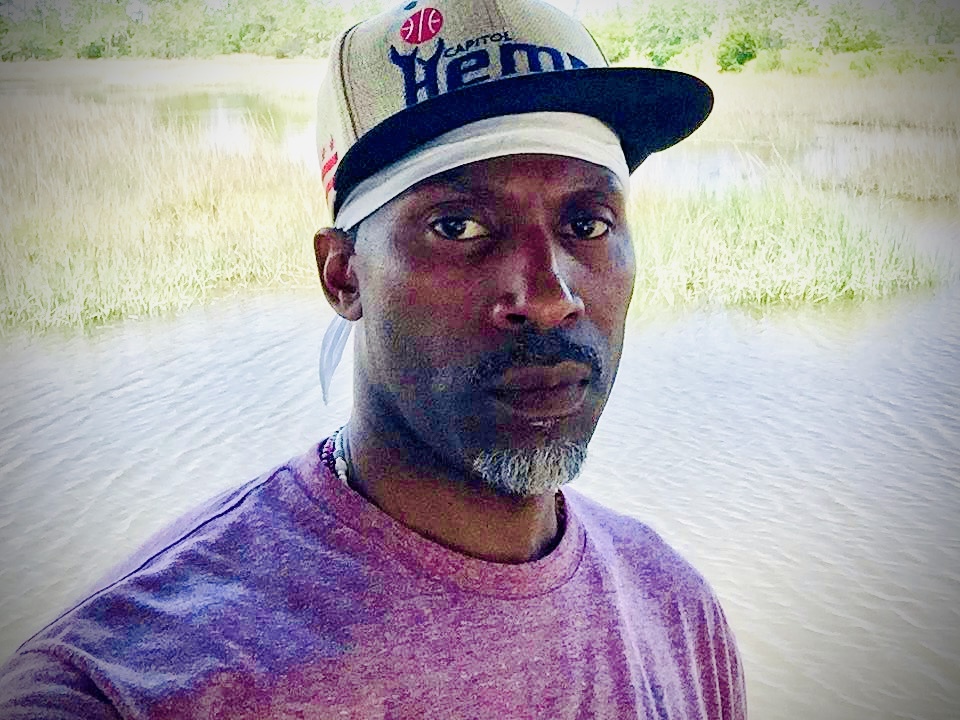
Related Articles
Related Articles
Related Articles
